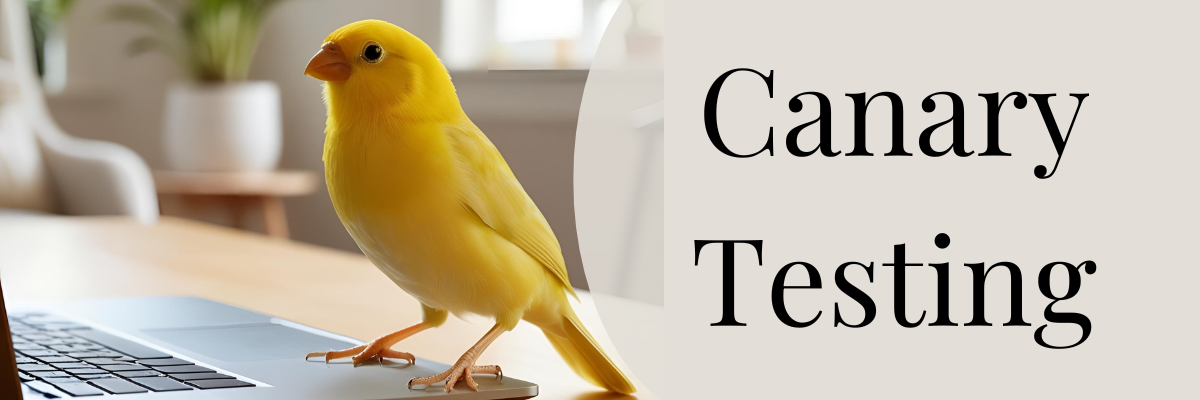
Boosting PMO Efficiency with AI: Strategies & Case Studies
The evolution of Artificial Intelligence (AI) in project management is reshaping how Project Management Offices (PMOs) enhance efficiency, streamline operations, and optimize decision-making. Leading companies leverage AI-driven project management tools to automate workflows, improve forecasting, and allocate resources more effectively.
In this article, we explore how top organizations use AI in PMOs, with real-world case studies showcasing AI’s impact on project success.
Understanding the Project Management Office (PMO)
A Project Management Office (PMO) is a centralized entity within an organization that standardizes project-related governance processes and facilitates the sharing of resources, methodologies, tools, and techniques. The primary objectives of a PMO include:
- Establishing Project Management Standards: Developing and maintaining best practices, processes, and templates to ensure consistency across projects.
- Resource Management: Allocating and overseeing resources to ensure they are used efficiently across various projects.
- Performance Monitoring: Tracking project progress and performance to ensure alignment with organizational goals.
- Training and Mentorship: Providing guidance and support to project managers and teams to enhance their competencies.
By centralizing these functions, a PMO ensures that projects are executed efficiently, align with strategic objectives, and deliver value to the organization.
Why AI is Essential for PMO Efficiency
AI-powered project management tools enable PMOs to:
- Automate repetitive tasks like scheduling, reporting, and risk analysis.
- Enhance project forecasting accuracy for budgets, timelines, and resource planning.
- Improve collaboration with AI-powered chatbots and virtual assistants.
- Analyze historical data to enhance project success rates and risk mitigation.
Real-World Case Studies: AI in Action
Case Study 1: IBM – AI for Predictive Project Planning
Challenge:
IBM faced difficulties in predicting project delays and budget overruns in complex IT implementations.
AI Solution:
IBM deployed Watson AI analytics to analyze historical project data, predict risks, and provide real-time project insights.
Results:
- 40% improvement in project forecasting accuracy.
- Proactive risk management, reducing missed deadlines.
- Increased client satisfaction through better project predictability.
Case Study 2: Microsoft – AI-Powered Task Automation
Challenge:
Microsoft’s PMO teams struggled with manual documentation and compliance reporting, consuming valuable time.
AI Solution:
Microsoft integrated AI-based automation tools in Azure DevOps, streamlining project updates and compliance tracking.
Results:
- 30% time savings for project managers.
- AI-driven insights improved project risk management.
- Higher documentation accuracy, reducing compliance issues.
Case Study 3: Siemens – AI for Resource Optimization
Challenge:
Siemens faced inefficiencies in global resource allocation and skill mismatches.
AI Solution:
Siemens implemented an AI-powered resource optimization tool, matching project requirements with available personnel based on skills, workload, and past performance.
Results:
- 35% improvement in resource allocation efficiency.
- Increased workforce productivity.
- Reduced project delays through better task distribution.
Case Study 4: Deloitte – AI for Risk Management
Challenge:
Deloitte needed a proactive approach to project risk assessment across global client engagements.
AI Solution:
Deloitte deployed AI-based risk assessment models, continuously monitoring project metrics, compliance, and financial forecasts.
Results:
- 25% reduction in project failure rates.
- Better regulatory compliance.
- Enhanced risk visibility, allowing early intervention.
How PMOs Can Support Project Managers with AI
Integrating AI into PMO operations not only enhances overall efficiency but also provides direct support to project managers:
- Personalized Training and Development: AI-powered learning platforms can assess individual project managers’ strengths and areas for improvement, offering tailored training programs to enhance their skills.
- Decision Support Systems: AI can provide project managers with data-driven recommendations, helping them make informed decisions swiftly.
- Resource Matching: AI algorithms can match project managers to projects that align with their expertise and experience, increasing the likelihood of project success.
- Real-Time Feedback: Through sentiment analysis and performance metrics, AI can offer real-time feedback to project managers, enabling them to adjust strategies proactively.
By leveraging AI, PMOs empower project managers to perform at their best, leading to more successful project outcomes.
How to Implement AI in Your PMO
Successfully integrating AI into your PMO requires a structured approach, ensuring alignment with business goals, project needs, and organizational capabilities. Here are key steps to effectively leverage AI for PMO efficiency:
1. Adopt AI-Driven Project Analytics
AI-powered project analytics tools can process vast amounts of historical and real-time project data to provide actionable insights. These tools help PMOs:
- Predict Risks Proactively: AI algorithms analyze past project data and current progress to identify patterns that may indicate future risks. This allows project managers to address issues before they escalate.
- Enhance Decision-Making: With AI-driven recommendations, PMOs can make data-backed decisions on project prioritization, budgeting, and scheduling.
- Improve Performance Tracking: AI-based dashboards provide real-time status updates, helping teams identify bottlenecks and optimize workflows for better efficiency.
2. Automate Administrative Tasks
Administrative overhead is a common challenge for PMOs, consuming valuable time that could be spent on strategic activities. AI-powered automation tools can streamline processes such as:
- Document Management: AI-driven document processing tools can auto-generate reports, summarize meeting notes, and ensure version control across project documentation.
- Intelligent Scheduling: AI assistants analyze team availability, workload, and deadlines to optimize meeting schedules and project timelines.
- Automated Reporting: AI-powered dashboards generate real-time reports, reducing the manual effort required to compile progress updates.
By automating these repetitive tasks, AI frees up PMO resources, enabling teams to focus on higher-value activities such as strategy, stakeholder engagement, and innovation.
3. Optimize Resource Allocation
AI can play a crucial role in optimizing human and material resource allocation by:
- Matching the Right Talent to Projects: AI-driven workforce management tools assess employees’ skills, past performance, and availability to assign the best-suited individuals to each project.
- Balancing Workloads: AI monitors workload distribution to prevent burnout and improve productivity, ensuring teams operate at peak efficiency.
- Predicting Future Staffing Needs: AI forecasts project resource requirements based on historical data, helping PMOs proactively plan for talent acquisition or upskilling initiatives.
4. Enhance Risk Management
AI-driven risk management tools help PMOs identify, assess, and mitigate risks in real-time. AI enhances risk management by:
- Early Risk Identification: AI analyzes project data to detect warning signs of potential issues, such as delays, scope creep, or budget overruns.
- Scenario Planning and Risk Mitigation: AI can simulate different project scenarios to suggest risk mitigation strategies and contingency plans.
- Real-Time Alerts: AI-powered tools send automated alerts and recommendations when project deviations occur, ensuring prompt corrective action.
5. Foster AI Adoption and Change Management
Implementing AI in a PMO is not just about deploying technology; it also requires organizational alignment and user adoption. To ensure a smooth transition:
- Educate Teams on AI Benefits: Provide training sessions and workshops to help project managers understand how AI can enhance their workflows.
- Start Small and Scale Gradually: Begin with pilot projects to demonstrate AI’s value before scaling implementation across the PMO.
- Encourage a Data-Driven Culture: Promote the use of AI-powered insights in decision-making, fostering a culture where teams rely on data rather than intuition alone.
Final Thoughts: The Future of AI in PMOs
AI is transforming project management by enhancing efficiency, reducing manual workload, and improving decision-making. Companies like IBM, Microsoft, Siemens, and Deloitte demonstrate how AI can optimize PMO operations, making them more predictive and proactive.
For businesses looking to stay ahead, integrating AI into PMO strategies is no longer optional—it’s essential.
Are you ready to implement AI in your PMO? Start by identifying pain points in your project management process and exploring AI solutions tailored to your needs.
Read more from our blog:
Empathetic Leadership: The Hidden Superpower of Today’s Best Project Managers
Across industries and team dynamics, one leadership trait is quietly transforming teams, elevating p…
Leadership Lessons from Unexpected Places: What Project Managers Can Learn from Pilots, Chefs, and Athletes
Sure, project management loves its frameworks and certifications—but let’s be honest, no one ever go…
Oops! How to Recover From That Accidental Screen Share Slip-Up in a Work Meeting (Without Moving to a Remote Island)
We’ve all been there. One second you’re presenting quarterly numbers, and the next, your…
Writing a Project Status Report That Actually Gets Read (With Examples)
Let’s be honest: most project status reports collect dust in inboxes. They’re either too long,…
The MoSCoW Method: A Complete Guide to Prioritization in Project Management
Introduction Effective prioritization is key to delivering value on time and within budget. One of t…
Canary Testing: The Smart Way to Deploy Software with Minimal Risk
For many organizations, rolling out updates and new features comes with inherent risks. Even with ri…
The Rise of Adaptive Leadership: Thriving in Uncertain Times
Traditional leadership models often fail due to an ever-changing business landscape. The increasing …
The Rise of the Citizen Project Manager: How It Happens and How to Succeed
Introduction Project management is no longer confined to those with formal titles, certifications, a…
Marketing Project Management: What Makes It Unique?
Marketing project management is a dynamic and multifaceted discipline that blends creativity with st…








